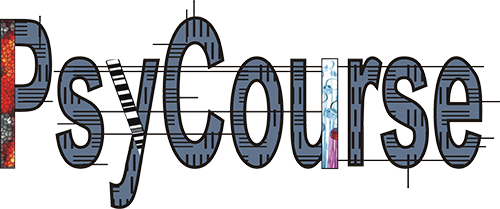2021-11-25
046_ Mitochondrial-related genes variants in major psychiatric patients of the PsyCourse study
Research Question and Aims
Mitochondria are membrane-bound cell organelles, located in cytoplasm, and produce the majority of the energy required for the cell metabolic activities. They contain DNA (mtDNA) and are enriched in active tissues like muscle and brain (1). The mitochondrial-related gene set includes both mitochondria-encoded genes (37 genes from mitochondrial DNA) and nuclear-encoded genes (∼1,500 genes from the nuclear genome) with mitochondrial function (2). Human mtDNA is a double-stranded circular molecule of roughly 16,569 nucleotides that encode 2 rRNAs, 22 tRNAs, and 13 polypeptides and is inherited in a matrilineal manner (1). Neural activity, including synaptic connection, axon formation, and neuronal plasticity, can be significantly harmed by mitochondrial malfunction (3). Subjects with mitochondrial disease have been shown to develop psychiatric symptoms. Increased psychiatric symptoms, on the other hand, have been linked to a decrease in mitochondrial functional activity (4). Previous studies showed that mutations and common variants of the mitochondrial-related gene set modify the structure and expression levels of relevant proteins, and can contribute to vulnerability to mental illnesses such as schizophrenia and bipolar disorder (1-3). Investigating the role of mitochondrial-related genes variants in psychiatric disorders could lead to novel treatments to promote mitochondrial health and brain function (4). The goals of this study are: i) to identify the mitochondrial-related genes variants in the PsyCourse study and compare patients to healthy controls in this regard, and ii) to look for associations of variants in these genes with psychopathological and neurocognitive cross-sectional profile in PsyCourse participants. Since most of the research analyzing mitochondria variants, has focused on differentiating diagnostic groups, our explorative analysis is aimed particularly at influence of mitochondria variants on different psychopathological and neurocognitive variables available in PsyCourse, which is not well-characterized.
Analytic Plan
Analysis will use the PsyCourse samples (patients and controls) genotyped applying the GSA. Among the genotypic data, we extract only the mitochondrial-related variants including the mitochondria- and the nuclear-encoded genes. Using these data and also phenotypic data, we will investigate the association of mitochondrial-related genes variants with major psychiatric disorders and different subphenotypes related to psychopathology and cognition in a cross-sectional approach. These analyses will be adjusted for age, sex, medication, drug use, population stratification (PCA or MDS components), and other relevant covariates in the context of linear/logistic models.
Resources needed
Demographic data:
v1_sex
v1_age
Clinical data:
v1_cur_psy_trm
v1_dur_illness
v1_scid_dsm_dx_cat
Psychopathology data:
v1_panss_sum_pos
v1_panss_sum_neg
v1_panss_sum_gen
v1_ymrs_sum
v1_idsc_sum
v1_bdi2_sum
v1_asrm_sum
v1_idsc_sum
v1_mss_sum
Neurocognition data:
v1_nrpsy_tmt_A_rt
v1_nrpsy_tmt_A_err
v1_nrpsy_tmt_B_rt
v1_nrpsy_tmt_B_err
v1_nrpsy_dgt_sp_frw
v1_nrpsy_dgt_sp_bck
v1_nrpsy_dg_sym
v1_nrpsy_mwtb
Raw data on medication and drug use
210908_v5.0_psycourse_clin_raw_ill_drg_(visit1).RData
210908_v5.0_psycourse_clin_raw_med_(visit1).RData
210908_v5.0_psycourse_con_raw_ill_drg_(visit1).RData
210908_v5.0_psycourse_con_raw_med_(visit1).RData
Genomics data:
Raw genotypes (GSA chip) and imputed data from PsyCourse patients and healthy controls.
